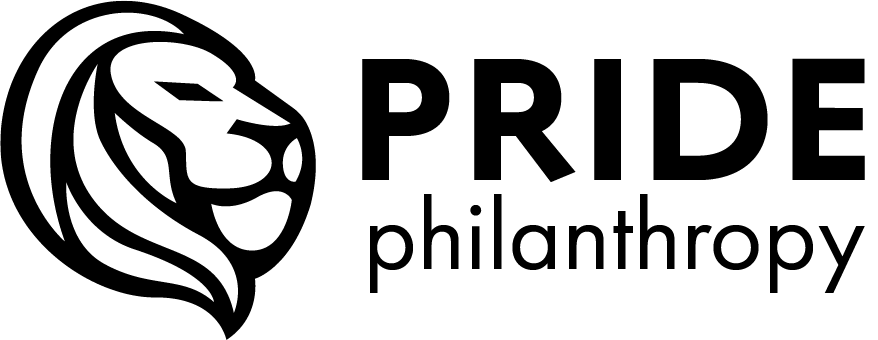Nonprofit Feasibility Study: A Comprehensive Guide
We’re going to take a shot in the dark here and guess that you probably want to raise more money for your nonprofit. Perceptive, aren’t we? Increasing your fundraising efforts for your mission is a noble pursuit, but much easier said than done. With endless information online as far as how to bring money in for your 501(c)(3) organization, the question most nonprofits ask themselves is: “Where do I even start?”. If you are looking to bring more money in to your nonprofit and don’t know which direction to go, which projects to raise money for, how to find donors, or how much your fundraising goal should be, you likely could benefit from a feasibility study.
At PRIDE Philanthropy, we understand the importance of laying a solid foundation for your fundraising campaigns and eliminating the “guesswork” in your development efforts. Through this guide, we aim to demystify the process of conducting a comprehensive nonprofit feasibility study, ensuring your organization's vision is not just achievable but also impactful.
Understanding Nonprofit Feasibility Studies
A nonprofit feasibility study is an essential process that evaluates the potential success of a fundraising campaign before it begins. It’s a thorough assessment that explores the willingness of your potential donors to support the campaign, the capacity of your organization to undertake the initiative, and the overall community’s reception to your fundraising goals.
The Significance of Feasibility Studies
Why invest time and resources into a feasibility study? The answer lies in its power to forecast the outcome of your fundraising efforts and eliminating any guesswork. This preemptive insight not only saves valuable resources but also directs your strategy towards the most fertile grounds for support. Think of it this way: you could spend hundreds of hours and countless dollars on a project that was never going to get the necessary support from your community. It’s easy to be overly critical of yourself when your fundraising efforts aren’t successful, but with the proper planning we can throw our weight behind our development efforts knowing the appeal for our projects is there.
By understanding your organization's position within the community and the philanthropic landscape, you can tailor your campaign to resonate with those most likely to contribute, ensuring a higher rate of success.
Conducting the Study
1. Gathering Preliminary Data
The first step towards a successful feasibility study is gathering internal data. This involves reviewing past fundraising efforts, assessing the current donor base, and understanding the organization's financial health and capacity. This initial review sets the stage for a more in-depth exploration of potential support.
2. Engaging Stakeholders
The heart of the feasibility study lies in engaging with a broad spectrum of stakeholders. These include potential donors, community leaders, and anyone with a vested interest in your organization's mission. While it’s good to communicate with a broad range of people invested in your mission, what we really want to go for in depth.
This is why when engaging stakeholders, it’s crucial that we communicate that any feedback given in confidential to ensure people are forthright with their insights. Good, bad, or otherwise. The goal here is to gather candid feedback on the perceived strengths of your organization, the appeal of the fundraising initiative, and the level of potential support.
3. Crafting and Conducting Interviews
The method of engaging stakeholders typically involves in-depth interviews. These confidential conversations are designed to uncover honest perceptions and willingness to support the campaign. This is also a great opportunity to get candid feedback about different projects or expansions that might be pursued. Crafting questions that encourage open and insightful responses is key to deriving meaningful insights from these interviews. Start by asking broad questions first, then gradually dig deeper to get the best information possible.
4. Analyzing Feedback
Once the data is collected, the next phase is analysis. This involves sifting through the feedback to identify trends, opportunities, and challenges. The analysis will give you a clear picture of the fundraising landscape, helping you to understand the level of support your campaign can realistically achieve.
This analysis involves looking for patterns and insights from key stakeholders as well as information about the area you are looking to raise money in. The amount of data and feedback that is collected can be overwhelming, so make sure to set up systems to process and digest the raw data to be able to see the bigger picture.
5. Taking Actionable Steps
With the insights gained from the feasibility study, your organization can now plan its next steps with confidence. This may involve refining your campaign goals, adjusting strategies to better align with donor interests, or even identifying new potential supporters.
We always recommend taking action on campaign goals like lead gifts immediately following a feasibility study. Start with your easiest “yes”s first, and use the information gathered during the feasibility study to build your case statement and solicit gifts.
The PRIDE Philanthropy Approach
A feasibility study can be a daunting task if you’ve never done one before. It’s a lot to plan, organize, and schedule before you even get to the analysis and decision making stage that will determine the success of your fundraising efforts. At PRIDE Philanthropy, we specialize in guiding nonprofits through the intricate process of conducting feasibility studies. Our approach is tailored to not just assess the feasibility of your successful campaign, but your ongoing fundraising success in perpetuity long after your campaign is over. By partnering with us, you benefit from our expertise in navigating the philanthropic landscape and our commitment to turning your fundraising aspirations into achievable targets.
If you are looking to scale up your fundraising and need help with the planning stage of your development efforts, let PRIDE Philanthropy be your guide to unlocking the full potential of your fundraising campaigns, ensuring your vision for a better world is not just a dream, but a forthcoming reality.

